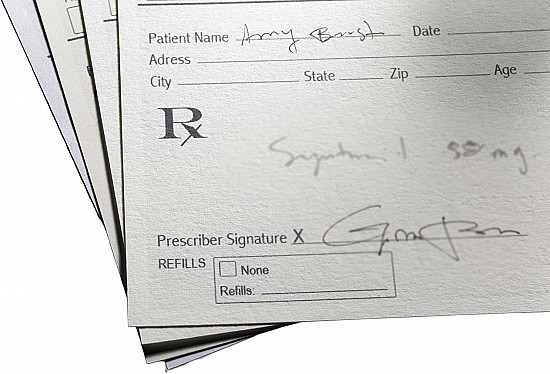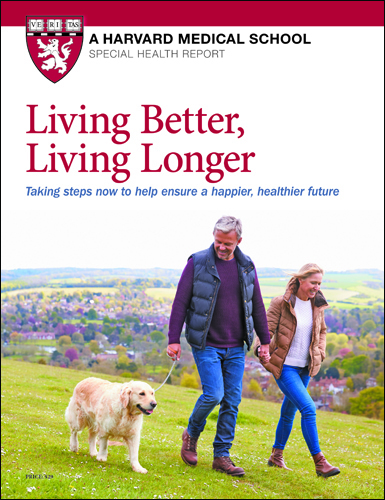Smart questions to ask about a new prescription
Getting answers can help you avoid costly medication mistakes.

When your doctor prescribes a new drug, you might not think of all the questions you should ask about it. Maybe your appointment is rushed, you're focused on a diagnosis, or you just don't feel well. That's all understandable. But without enough information, you might be vulnerable to the consequences of a medication error (such as taking too much or too little of the drug). Such errors result in 1.3 million emergency department visits each year in the United States. If you don't ask questions when you get a prescription, seek information as soon as possible and write down the answers. Here are ideas to get you started.
Why is this being prescribed?
"You need to be in on your treatment so you understand what your condition is, how a particular medication will help you, and what would happen if you didn't take it. A good example is high blood pressure. Since it often doesn't cause symptoms, some people don't realize that if high blood pressure is not controlled, it can lead to a heart attack or stroke," says Joanne Doyle Petrongolo, a pharmacist at Harvard-affiliated Massachusetts General Hospital.
What is the name of the drug?
Make sure you get the name of the medication, so you'll be able to recognize it on a pill bottle and know how to refer to it.
What are the side effects?
Medications often have the potential to cause side effects such as dizziness, drowsiness, nausea, or headache. Find out what the common side effects are for the drug you're getting, and what to do if you notice them. For example, "some medications for anxiety or depression may cause you to be sleepy, so you may want to take the medication only while you're at home, and avoid driving," Doyle Petrongolo says. "Find out how your body reacts to it so you can plan your day."
What are the drug instructions?
Medication instructions vary widely. Some are simple, like taking a drug with food (to ward off stomach irritation) or without food (to promote better absorption). Others are more complicated. An example is alendronate (Fosamax) to treat osteoporosis. "You need to take it on an empty stomach one hour before meals or two hours afterward, with a large glass of water, and you can't lie down for one hour after taking it because it can irritate the esophagus," Doyle Petrongolo says.
Ask about the best way to fit a new medication into your existing regimen.
How long will I need to take it?
The length of time you need to take a prescription drug also varies, depending on your needs. But not everyone gets that message. "For example, I run into problems with some patients thinking they only have to take a blood pressure medication for a month or until refills run out, although they really need to take it indefinitely," Doyle Petrongolo says. "On the other hand, a drug like a pain reliever might only be intended for the short term."
Ask up front how long your doctor thinks you'll need to take the drug, and how you'll know when to stop.
Will it affect my other medications?
Many pills — including over-the-counter remedies and supplements — have harmful interactions with others, such as amplifying the effect of one or making another too weak. For example, taking calcium can block the effect of levothyroxine (Synthroid, Tirosint) that is taken to treat an underactive thyroid.
Some interactions can be dangerous. "A lot of antibiotics can interact with the blood thinner warfarin [Coumadin], increasing the risk for bleeding." Doyle Petrongolo says. Make sure your doctor knows about everything you're taking at the time a new drug is prescribed.
What if I miss a dose?
In some cases, it might be okay to skip a dose or take the medication when you realize you missed it. In others, it depends on when you make the discovery.
For example, with metformin (Glucophage, Riomet) for diabetes: "If you're supposed to take doses at 8 a.m. and 6 p.m., and you discover at midnight that you forgot your 6 p.m. dose, you might need to skip it and wait until the morning. Otherwise, it could make the morning dose too strong. But you'd need guidance from your doctor or pharmacist," Doyle Petrongolo says.
More questions
Here are other important questions:
- How much does the drug cost?
- Can I get it in a generic form?
- How will we know it's working?
- Is it safe to drive while taking it?
- Can I drink alcohol while taking it?
- How can I get refills?
- How should I store it?
- Are there drug-free alternatives?
"And if more questions occur to you," Doyle Petrongolo says, "don't be embarrassed to ask them."
Image: © FatCamera/Getty Images
About the Author

Heidi Godman, Executive Editor, Harvard Health Letter
Disclaimer:
As a service to our readers, Harvard Health Publishing provides access to our library of archived content. Please note the date of last review or update on all articles.
No content on this site, regardless of date, should ever be used as a substitute for direct medical advice from your doctor or other qualified clinician.
















